Posted on 5/23/2025
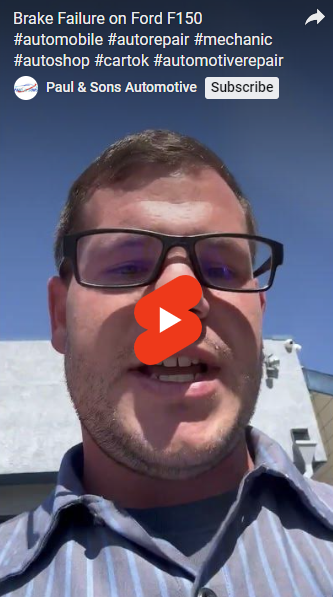
Let’s talk about a hidden hero in your Ford F-150’s braking system—the brake vacuum booster. It’s not flashy. It doesn’t make noise (unless something’s wrong). And most folks don’t even know it’s there. But when you’re cruising in a 5,000-pound truck, and suddenly need to stop on a dime, that booster might just be the reason you don’t end up in someone’s back seat. What Is a Brake Vacuum Booster, Anyway? Think of it as power steering for your foot. The brake vacuum booster multiplies the force you apply to the brake pedal using engine vacuum. Without it, your leg would need to work overtime just to slow down your truck. Here’s how it works: when you press the brake pedal, a valve inside the booster opens, allowing atmospheric pressure to assist the braking effort. This added force pushes on the master cylinder more effectively—so even a gentle tap gives you strong stopping ... read more
Posted on 5/12/2025
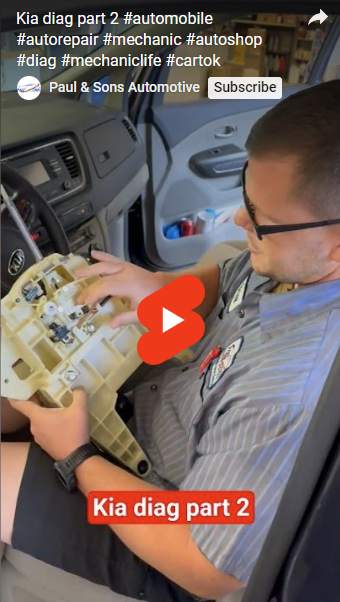
Common Wiring Issues to Watch For While fuses protect your vehicle, wiring issues can still cause trouble. Look out for: Flickering lights Non-functioning power windows or mirrors Burning smells or visible wire damage Repeated fuse blowouts (a sign of a deeper issue) If you notice these signs, it might be time to consult a professional or dig deeper into the wiring harnesses for potential shorts or corrosion
Posted on 5/5/2025
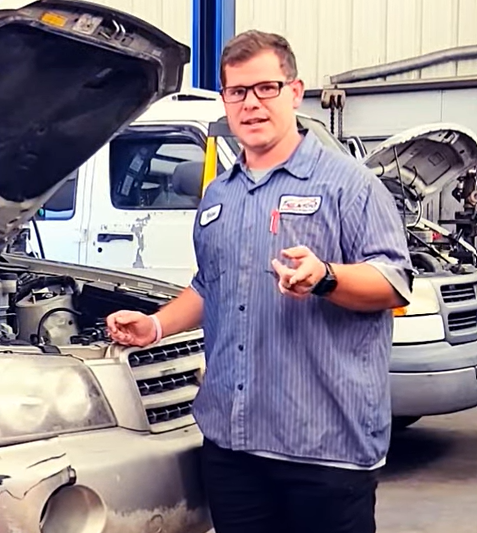
We don’t just read codes — we interpret real-time data, identify hidden issues, and provide accurate, dealer-level insights to save you time and money. Whether it’s a check engine light or a strange electrical glitch, we’ll pinpoint the problem fast. Service Includes: Full system scan Trouble code analysis Freeze frame & live data review Clear codes after repair Post-repair verification & test drive
Posted on 4/10/2025
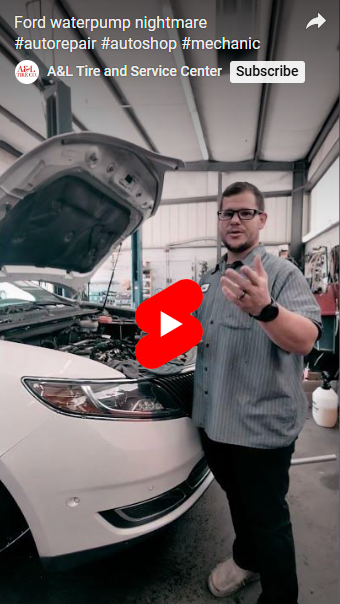
A car water pump is a crucial component in the engine's cooling system. Its primary function is to circulate coolant (a mixture of water and antifreeze) through the engine and radiator to maintain optimal operating temperatures and prevent the engine from overheating. Here's how it works: Coolant Circulation: The water pump uses a pulley and a belt to drive a rotor (impeller) inside the pump. As the engine runs, the pump pulls coolant from the radiator and pushes it through the engine block and cylinder head. This helps absorb the heat generated by the engine during operation. Heat Transfer: Once the coolant absorbs heat, it flows back to the radiator, where the heat is dissipated. The coolant is cooled by airflow through the radiator or the use of a fan. Pressure Regulation: The pump also helps maintain the pressure within the cooling system, which ensures the coolant flows efficiently and prevents air pockets that could lead to overheating. In summary, the water pump is e ... read more
Posted on 4/1/2025
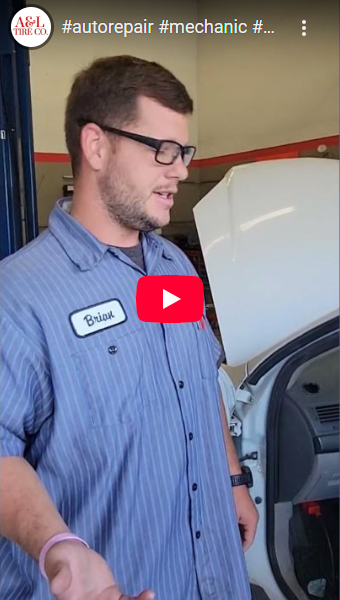
The check engine light (CEL) is a crucial indicator that your vehicle's onboard diagnostics system has detected a problem with one of its components. To properly diagnose and address the issue, mechanics and technicians use a variety of tools and follow specific processes. Here’s an overview of the tools and steps involved in diagnosing a check engine light: OBD-II Scanner (On-Board Diagnostics II): The first and most essential tool for diagnosing the check engine light is an OBD-II scanner. This device connects to the vehicle's OBD-II port (usually located under the dashboard near the driver's seat) and retrieves diagnostic trouble codes (DTCs) stored in the vehicle's computer system. These codes are alphanumeric, providing clues to the malfunctioning system or component. The scanner can also display real-time data such as engine performance, fuel efficiency, and sensor readings. Code Interpretation: Once the OBD-II scanner pulls the DTCs, the mechanic interpre ... read more
Posted on 4/1/2025
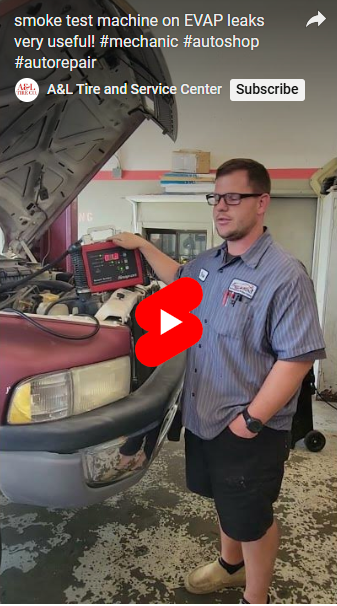
Evaporative (EVAP) leaks in a vehicle’s fuel system can lead to poor fuel efficiency and increased emissions. To detect these leaks, mechanics often use smoke machines, which generate a dense, harmless smoke that is pumped into the EVAP system. The smoke makes any leaks visible, allowing technicians to pinpoint the exact location of the issue and repair it effectively. This method is highly accurate and helps ensure the vehicle meets emission standards
Posted on 4/1/2025
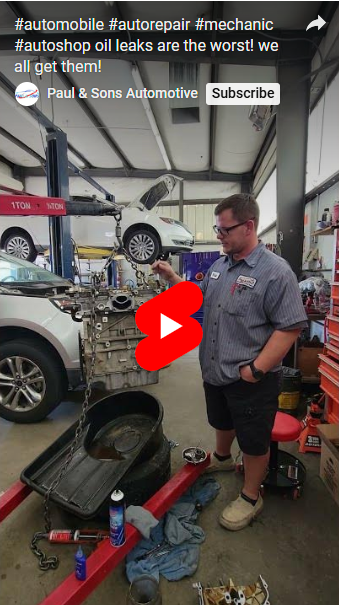
Engine oil leaks can lead to serious engine damage if not addressed promptly. They often result from worn seals, gaskets, or cracked components, causing oil to escape from the engine. It's essential to regularly check for signs of oil leakage, such as oil spots on the ground or low oil levels, to prevent costly repairs and maintain engine performance
Posted on 3/7/2025
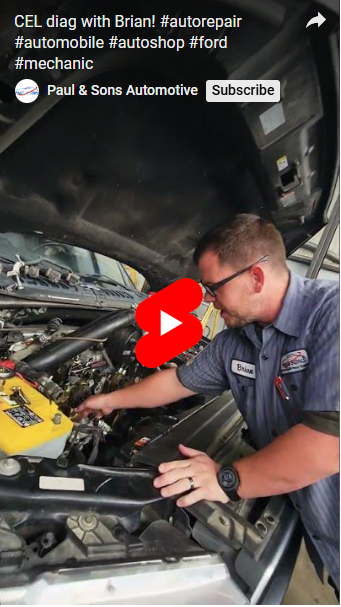
Timing chain issues in Ford 3.5L engines, particularly in models like the Ford Taurus, Explorer, and Edge, can lead to poor engine performance and costly repairs. Common problems include chain wear, slack, or tensioner failure, which can cause rattling noises, engine misfires, or even catastrophic engine failure if left unaddressed. Regular maintenance and timely inspection of the timing chain system are crucial to avoid these issues. Signs of a failing timing chain include engine noise at startup, rough idling, or poor acceleration. Replacing the timing chain and associated components early can prevent significant damage to the engine
Posted on 1/29/2025
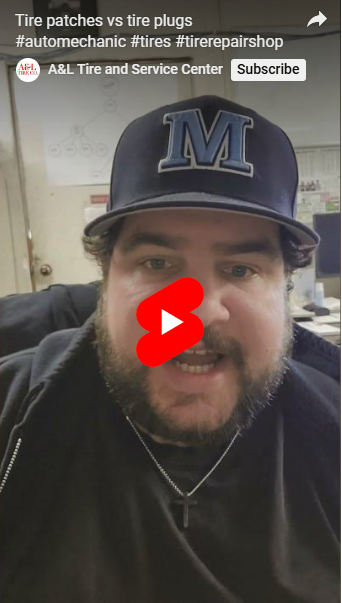
Tire Patches:How they work: A tire patch is a rubber piece that is applied to the inside of the tire over the puncture. It requires removing the tire from the rim to properly apply the patch and ensure a secure, long-lasting seal. Best for: Punctures that are located in the tread area of the tire (not on the sidewall) and are larger than a simple hole, but still repairable. Durability: Provides a more permanent solution since it seals the puncture from the inside out. It also helps maintain the structural integrity of the tire. Process: The tire must be dismounted from the rim, inspected, and cleaned before the patch is applied. It requires more time and expertise than a plug. Tire Plugs:How they work: A tire plug is a rubber or synthetic plug that is inserted into the hole in the tire from the outside. The plug fills the puncture and seals it temporarily ... read more
Posted on 1/22/2025
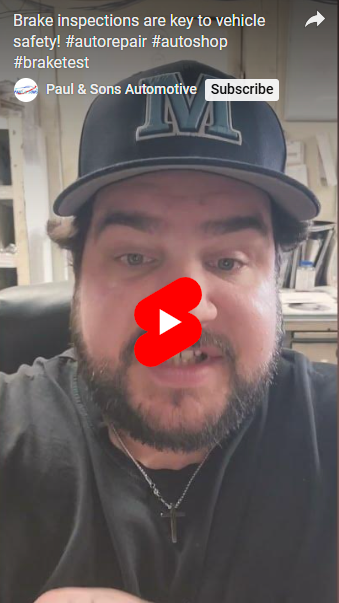
Brake inspections are key because they help ensure the safety and reliability of your vehicle. Regular inspections allow for early detection of worn-out brake pads, low brake fluid, or other potential issues that could compromise braking performance. Timely maintenance reduces the risk of brake failure, improves stopping power, and helps extend the life of brake components, ultimately contributing to safer driving and reduced repair costs